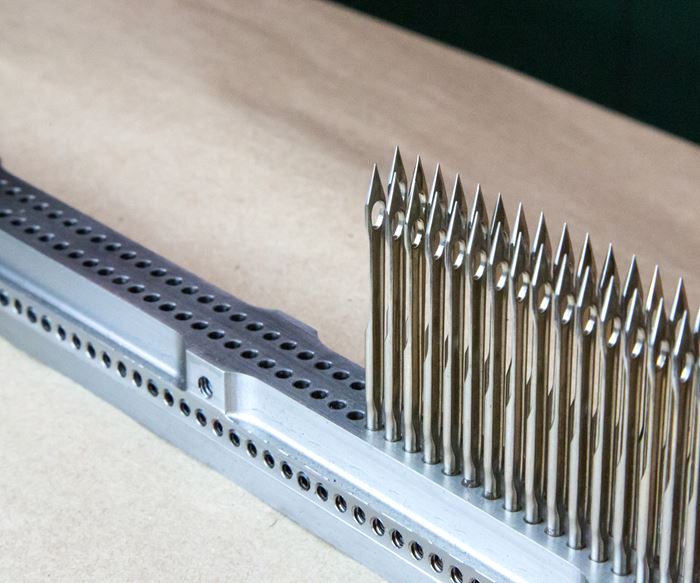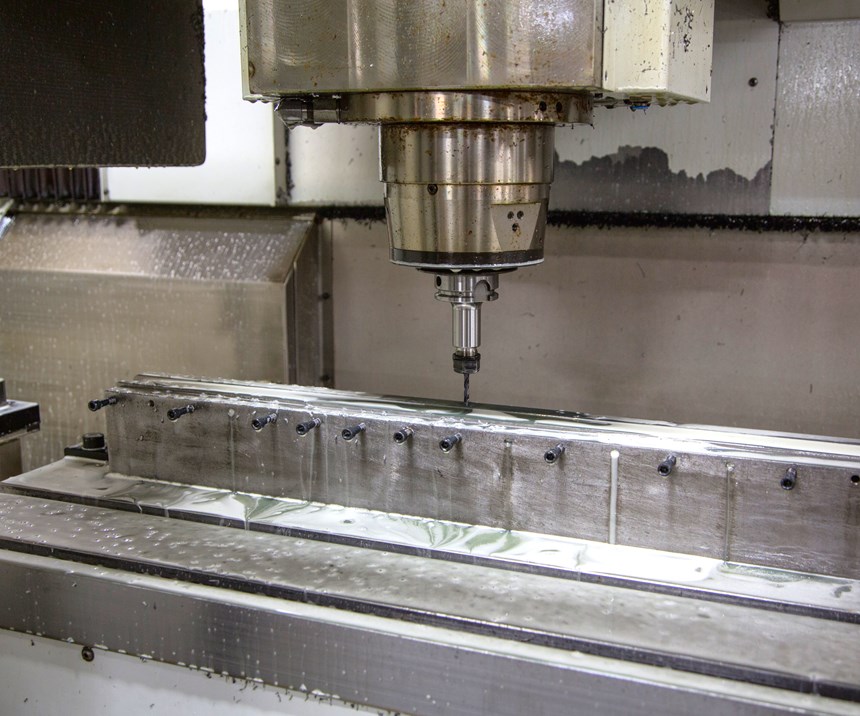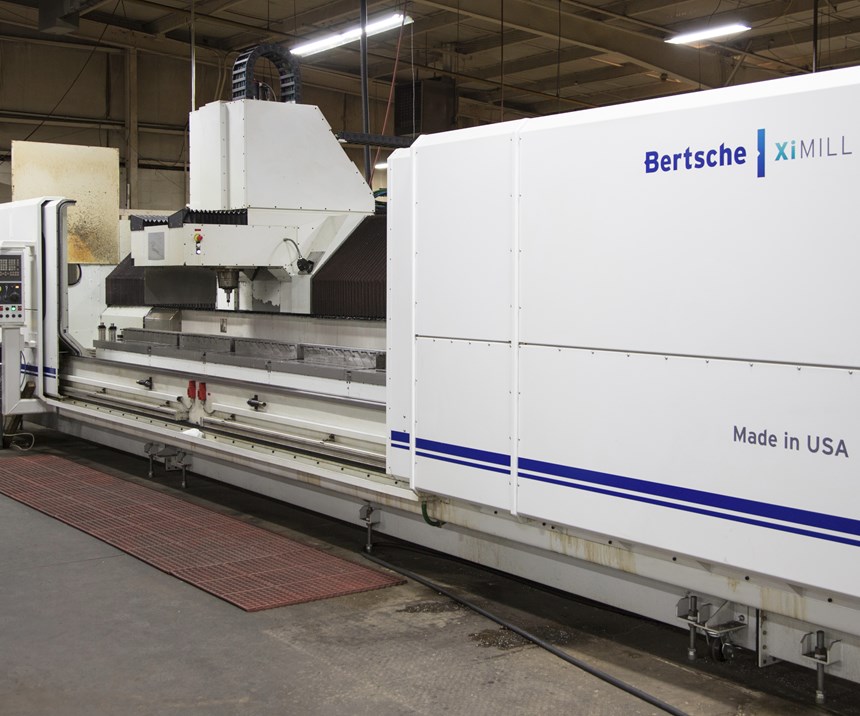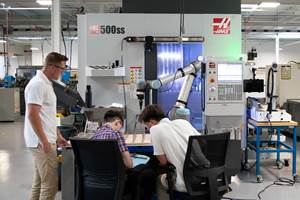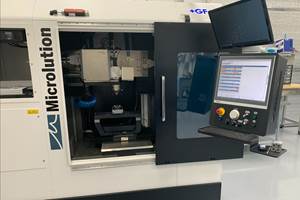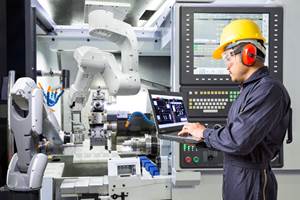When Machining Long Parts, Machine Shop Climate Matters
Machining long titanium tufting needle bars required a milling machine with a super-long X-axis travel. But the real challenge was thermal compensation in the Georgia heat.
Share




It gets hot in Dalton, Georgia, where Tuftco Corp. manufactures carpet tufting machines. These machines, which feature a long row of needles used to stick carpet threads onto their common base, present particular challenges for machining. When the company needed a more accurate machine tool capable of handling extremely long horizontal travels, Bertsche Engineering Corp.’s XiMill machining center presented itself as a solution. Even with the new machine, however, extreme environmental and part temperatures required further process changes.
One key component of a carpet tufting machine is the needle bar, which has thousands of precisely drilled holes in bars as long as 210 inches. The accuracy of these holes is critical to the reliable operation of a tufting machine, because thousands of needles reciprocate at very high rates of speed when it is operating. Particularly important to Tuftco is the accuracy of the bars. These bars wear out and must be replaced regularly. When that happens, the spare parts must match the original parts exactly.
Tuftco has been manufacturing tufting machines since 1960, and has even introduced new technologies to the industry over the years, including the first broad-loom tufting machine. Today it makes servo-driven tufting machines as well as carpet-finishing equipment.
Despite past success, the company eventually found itself unable to cost-effectively manufacture needle bars with ever-tightening tolerance requirements. This led to the decision to change the process by searching for long-travel machine tools that could meet more stringent manufacturing requirements. Tuftco needed a machine tool that would work within the manufacturing constraints of an existing plant with large in-plant temperature swings morning and night, winter and summer. Tuftco selected a Bertsche XiMill for this task on the premise that it is designed with, among other features, a thermal temperature compensation method that would promote consistent part accuracy.
Initially developed for the aerospace industry, the Bertsche XiMill is equipped with multiple temperature sensors to measure the machine bed temperature at different places as well as the temperature of the part to be machined and the coolant temperature used during drilling. The system then develops a composite picture of the thermal machining environment. It uses this to apply suitable temperature-length compensation.
Initial installation of the new machine went smoothly, but then measurement issues arose as production began. The existing method of measuring the manufactured parts using an internally developed single-axis laser part measuring machine produced results at odds with the machine’s measurement data. The shop brought in a Faro laser tracker to measure the parts, but this provided yet another set of differing results.
These discrepancies forced a collective rethink of the problem. The first step was to collect the initial measurement data. Tuftco then took steps to better understand the micro climate within the facility by accurately tracking temperatures in the plant, at the machine tool and of the material prior to machining. It used this information to determine the part’s temperature when it was being fixtured and how that temperature related to that of the machine. These observations established that whenever parts were clamped at higher-than-ambient temperatures (either due to previous machining or grinding operations or when large temperature swings occurred in the plant), the parts would fail inspection tests. Among other factors contributing to part errors were the order of machining operations and localized part cooling due to coolant application during machining, which resulted in uneven temperatures along the length of the titanium bar.
To avoid misunderstandings and restore trust in the various measuring processes, steps were taken to fully understand and educate personnel about how each measuring device applied thermal compensation, how it is calculated and how it is applied, so that they could confirm whether each measuring device is, indeed, providing correct and reliable data. Applying better temperature management in the plant; controlling the heat build-up in the workpiece; reordering the milling and reaming operations; selecting and optimizing tools, speeds and feed rates; and correctly applying thermal-growth compensation have resulted in a highly repeatable process even on Georgia’s hottest days.
Related Content
CNC Machine Shop Honored for Automation, Machine Monitoring
From cobots to machine monitoring, this Top Shop honoree shows that machining technology is about more than the machine tool.
Read MoreHow to Determine the Currently Active Work Offset Number
Determining the currently active work offset number is practical when the program zero point is changing between workpieces in a production run.
Read MoreWhere Micro-Laser Machining Is the Focus
A company that was once a consulting firm has become a successful micro-laser machine shop producing complex parts and features that most traditional CNC shops cannot machine.
Read More6 Machine Shop Essentials to Stay Competitive
If you want to streamline production and be competitive in the industry, you will need far more than a standard three-axis CNC mill or two-axis CNC lathe and a few measuring tools.
Read MoreRead Next
Registration Now Open for the Precision Machining Technology Show (PMTS) 2025
The precision machining industry’s premier event returns to Cleveland, OH, April 1-3.
Read More5 Rules of Thumb for Buying CNC Machine Tools
Use these tips to carefully plan your machine tool purchases and to avoid regretting your decision later.
Read MoreSetting Up the Building Blocks for a Digital Factory
Woodward Inc. spent over a year developing an API to connect machines to its digital factory. Caron Engineering’s MiConnect has cut most of this process while also granting the shop greater access to machine information.
Read More
